|
|
|
Книги Perova Natasha

|
Russia is a country rich in talent which as often gone unrecognized or been actively suppressed and its literary achievements have frequently been inaccessible to non-Russians. GLAS has been designed to bridge the cultural gap between East and West by providing translations which allow the best modern Russian writing to speak directly to the Western reader. The sources at our disposal are vast new works by young talents and established writers, works well-known to the readers of samizdat but now freely available for the first time, works that have never been offered for publication before, works that have emerged from decades of imposed obscurity... The Russians write a lot. And they read a lot. In these turbulent times the Russian literature scene is changing rapidly, and every new contribution is avidly consumed. Our intention is to involve readers in this fascinating process. GLAS is produced through the efforts of a team of experienced writers, critics, editors and translators. Our greatest hope is that you will enjoy it. |

|
This issue of Glas has a subtitle Soviet Grotesque and our subsequent numbers will follow a similar pattern, dealing with such themes as The Woman's View and The Jews in Russia. We hope this approach will increase our reader's enjoyment by offering them an integrated reading experience which gives us a clear insight into some aspect of life in Russia. The sense of the grotesque has a long and distinctive history in Russian literature. It can be argued that the Soviet period has provided particularly fertile ground for its development--many Russians would certainly think so. Grotesque literature has flourished here--without official acknowledgement or encouragement, of course--but only now can it be openly published and freely read. The pieces offered here clearly demonstrate the grotesque's ability to manifest itself in an unlimited range of style and form--the following pages offer lapidary jargon sketches, urbane self-referential prose, frantic stream of consciousness, surreal naturalistic detail and realistic narrative with lyrical interludes. In every case we feel the writer has something to say to the Western reader. |

|
Just as love is very much part of any human life, for the soviet citizen it was often accompanied by another powerful emotion--fear. For various reasons, as this collection shows, the two have always gone hand in hand in Russia. Here love is seen from various angles: the imprisonment of the first Soviet president's wife under Stalin (Razgon), homosexual love punishable by Soviet law (Kharitonov), unrequited love driving man to disaster (Makanin), adolescent longing for love and fear of rejection (Gareyev), an old granny's love for the shopping bag which is her provider (Gorenstein), love as adventure and misunderstanding (Zinik), anti-love among the dregs of society (Miloslavsky), trans-sexuals' surreal experiences (Pelevin), and love in that typically Soviet institution, the communal flat. Each person models his or her own world to live in, alone with oneself. Only writing gives us the chance to discover these innumerable unique worlds-from cancer wards to prison camps, those hells on Earth to which we are drawn by a strange fascination. Literature has been written for centuries, yet each generation's authors still manage to find new angles of vision and new literary idioms. This has been aptly demonstrated by the recent awarding of the first Russian Booker Prize. Two short listed authors-Makanin and Gorenstein-have been included in this issue, while Vladimir Sorokin, another short listed author, was published in the second issue of Glas. The closing interview with Alla Latynina, the first chairman of the Russian Booker Prize jury, gives a reflection into Russia's literary scene today. Despite Russia's present problems, the literary process continues. |

|
Bulgakov and Mandelstam never met and yet their lives had much in common. Both men were born in the same year, 1891, and both lives ended prematurely, crushed by the cruel totalitarian system. Mandelstam died in a Siberian gulag in December 1938, and Bulgakov 14 months later, in March 1940, from a terminal illness, probably brought on by unbearable stress and disillusionment. Despite their obvious genius both were largely unappreciated and unrecognized except by a handful of close friend who gave them encouragement and moral support. Both had unusually close relationships with their wives who inspired their work during their lifetime and enthusiastically promoted it after their deaths. If it were not for the wives' courageous efforts against all odds, world literature would have lost Mandelstam's luminous poetry and Bulgakov's superb magic realism forever. |

|
How was it possible that an entire country could live in mute fear? Why did Soviet intellectuals denounce each other and conspire with the authorities to brainwash ordinary people? Why did submarines sink and nuclear power stations explode in the Soviet Union? This collection contains stories by leading Russian writers Ludmila Petrushevskaya, Boris Yampolsky, Alexander Pokrovsky, Vladimir Kuzemko, Ilya Zverev. They attempt to explain the idiosyncrasies of Russian society by bringing to life experiences such as the vicious competition over private apartments, the ever-present threat of the GULAG, the precarious world of the Soviet atomic submarine, the Chernobyl disaster and its consequences, and the bizarre justice of the Soviet legal system. |

|
«The women's movement and women's literature are relatively new phenomena in Russian cultural life. Before perestroika there was only one organization for women, and that was the government-controlled Soviet Women's Committee. In the last few years sixty-two have been registered, six newspapers for women are now published, there is a TV programme called «Career Woman», and we have four feminist organizations. In devoting this issue to women's writing we are not proposing a rigid approach to Russian literature on the basis of gender, just as age or race strike us as only marginally relevant. It just so happened that in our search for new and interesting works of literature we have found an abundance of excellent stories by women writers. Some of these we are offering here for your attention as representative of woman's view of the world, and her present search for identity. To a large extent Russia's women are bearing the brunt of the present upheavals in our society.» |
|